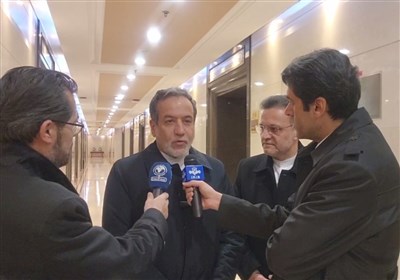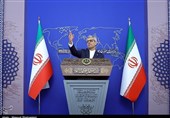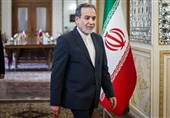Australian Prime Minister Says He Could Quit Parliament Soon
TEHRAN (Tasnim) - Australia's beleaguered prime minister warned he will quit Parliament on Friday if his disgruntled party continues to try to oust him, forcing a by-election that could cost the government its single-seat majority or pushing his successor into immediately calling general elections.
Prime Minister Malcolm Turnbull is under mounting pressure from supporter of his rival, former Cabinet minister Peter Dutton, to hold a leadership ballot of lawmakers in their conservative Liberal Party on Thursday.
Turnbull bought himself time by announcing he would hold a party meeting on Friday, but only if a majority of at least 43 lawmakers in the party signed a petition requesting a meeting.
If that meeting wanted a leadership ballot, Turnbull said he would not contest his job and would not stay in Parliament, AP reported.
"What we have witnessed at the moment is a very deliberate effort to pull the Liberal Party further to the right," Turnbull told reporters. "A minority has by a process of intimidation ... persuaded people that the only way to stop the insurgency is to give in to it. ... I have never given in to bullies," he added.
Senior ministers Mathias Cormann, Michaelia Cash and Mitch Fifield had earlier told Turnbull that he had lost his government's support and must hold a ballot quickly. It was a major blow to Turnbull's chances of staying in office.
Turnbull had defeated Dutton 48-35 in a surprise vote on Tuesday. Turnbull initiated the ballot in the hope of ending speculation that his government had lost faith in him in the face of poor opinion polling.
Cormann, the finance minister, had publicly stated his support for Turnbull on Wednesday, but on Thursday said Dutton should lead the government.
"I was wanting to continue to support Malcolm Turnbull for years to come as leader of the Liberal Party. But I can't ignore reality," Cormann told reporters.
"When I have five Cabinet colleagues telling me that they supported Malcolm on Tuesday ... but they have changed their position, that is not something that I can ignore," he added.
Media reports said other lawmakers were considering running for Turnbull's job, including Treasurer Scott Morrison.
Opposition lawmakers reacted with outrage when the government shut down Parliament hours early so that Liberal Party lawmakers could focus on their leadership crisis.
Opposition Labor Party leader Bill Shorten told Parliament it was evidence that "Australia no longer has a functioning government."
"The Liberal Party, whatever it does today and tomorrow, is irreparably split," Shorten said.
His deputy Tanya Plibersek told Parliament that whoever emerged as prime minister should immediately call an election — an outcome that some analysts argue is probable. But with the next election due by May, the ruling coalition is far less prepared for an election now than center-left Labor is. The coalition has yet to select many candidates.
Dutton supporters on Wednesday circulated a petition among Liberal Party lawmakers in a bid to force Turnbull to hold a ballot. But they failed to get the minimum 43 signatures that were required.
The opposition narrowly lost a vote in Parliament that would have sent Dutton to court to determine whether he is eligible to be a prime minister. The vote to refer Dutton to the High Court was defeated 69-68 in the House of Representatives before it adjourned.
Dutton has released legal advice that his family's ownership of two child-care centers that received federal funding does not breach a constitutional ban on lawmakers having a pecuniary interest in an agreement with the public service. Some constitutional lawyers say there are areas of doubt.
Such a pending court case could scare lawmakers away from supporting Dutton in a leadership ballot. Government lawyers are investigating his case to see if there were issues for the High Court to determine.
Turnbull said he wanted the government's legal advice on Dutton's eligibility presented to Friday's meeting.
No Australian prime minister has lasted a full three-year term since Prime Minister John Howard lost power in 2007 after more than 11 years in office. They have all been thrown out of power by their own parties amid poor opinion polling in a trend of political instability that divides parties and angers voters.






